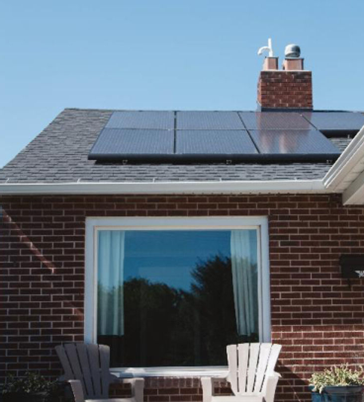South Africa is at a critical crossroads in its quest for a sustainable future, where energy storage is essential. The economics of energy storage affect the country's economy and the environment. Investigating the economics of energy storage is critical as South Africa struggles with issues related to environmental preservation and energy security.
The Current Energy Landscape in South Africa
To understand the significance of energy storage in South Africa, examining the current energy landscape is crucial. The nation has historically relied heavily on fossil fuels, with coal dominating the energy mix. While this has provided a stable energy source, it comes at the cost of environmental degradation and contributes to global warming. In recent years, South Africa has made strides in diversifying its energy sources, incorporating renewables like solar and wind power. However, the intermittent nature of these sources necessitates efficient energy storage solutions.

The Economic Benefits of Energy Storage
Investing in energy storage infrastructure brings forth many economic advantages for South Africa. One of the key benefits is grid stability. Energy storage systems act as a buffer, smoothing out the fluctuations inherent in renewable sources. This stability ensures a reliable power supply and reduces the need for expensive peak-load power plants. By making the most use of the current infrastructure, storing excess energy during periods of minimal demand, and discharging it during peak hours, energy storage also lowers expenses.
Furthermore, energy storage enhances the resilience of the power grid. Like many other nations, South Africa is vulnerable to extreme weather events and other disruptions. The energy storage south africa systems provide a decentralized and modular power supply approach, reducing outages' impact and improving overall grid reliability. Critical services like emergency response, healthcare, and economic activity depend on this resilience.
Job Creation and Technological Innovation
As South Africa transitions to a more sustainable energy model, deploying energy storage technologies presents a unique opportunity for job creation. Developing, manufacturing, installing, and maintaining energy storage systems require a skilled workforce. By investing in training and education programs, South Africa can foster a new generation of professionals experienced in renewable energy and energy storage technologies. This not only addresses the issue of unemployment but also positions the country as a hub for technological innovation in the energy sector.
Moreover, the economic ripple effect extends to research and development. As South Africa pioneers advancements in energy storage, it opens doors for innovation that can be exported to other nations facing similar energy challenges. This enhances South Africa's economy's global competitiveness and establishes the country as a leader in sustainable technology.

Overcoming Economic Barriers to Adoption
While the economic benefits of energy storage are clear, the initial investment costs can be a barrier to widespread adoption. South Africa must navigate these challenges by implementing supportive policies and financial incentives. Government subsidies, tax credits, and favourable financing options can stimulate private sector investment in energy storage projects. Additionally, fostering collaboration between the public and private sectors can leverage resources and expertise, accelerating the deployment of energy storage infrastructure.
Conclusion
The economics of energy storage in South Africa are intricately linked to the nation's journey towards sustainability. As the government strives to balance economic growth and environmental responsibility, energy storage is critical to this complex equation. By investing in grid stability, job creation, and overcoming financial barriers, South Africa can pave the way for a sustainable energy future. The economic dividends of such investments extend far beyond immediate gains, positioning South Africa as a global player in the transition to a greener, more resilient energy landscape. In embracing the economics of energy storage, South Africa charts a course towards a brighter, more sustainable future for generations to come.